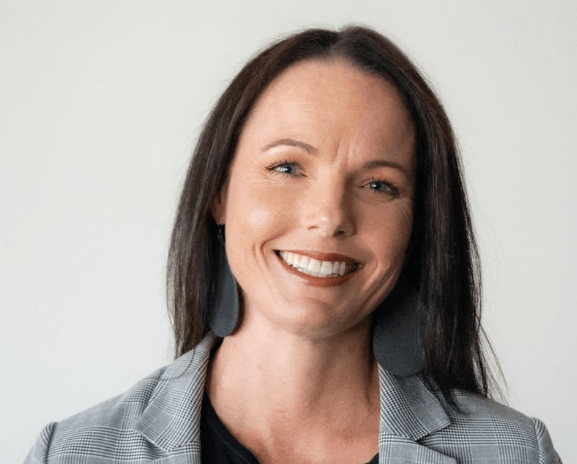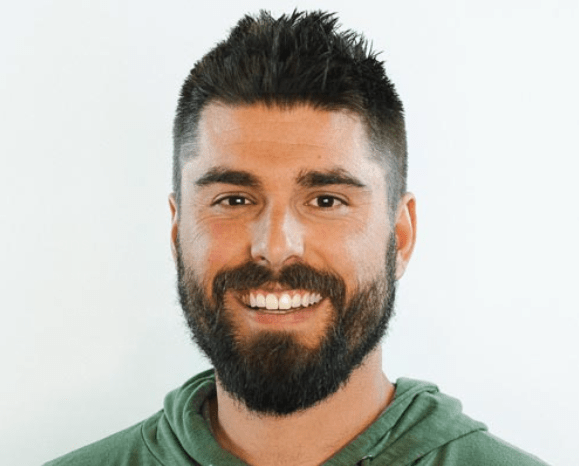Spokane Ministry Buys Strip Club to Expand Trafficking Victim Services
News Story by Cassy Benefield | FāVS News
Nicole didn’t choose the sex profession. After 17 foster homes, at the age of 16, she was coerced into it. But she didn’t know it at the time.
“I definitely didn’t understand how bad it was. I understood that something awful was going on,” she said with her image blurred and her name and voice changed for anonymity in a Helping Captives video. “At the time I thought that this is just what the drug world is.”
“I didn’t think it was human trafficking. I just thought it was survival,” she said.
Nicole is one of many clients Helping Captives, formerly HRC Ministries, has helped since their founding in 2015.
Now, this non-profit Christian ministry is expanding with the recent purchase of Déjà Vu Showgirls strip club in Spokane Valley. The club was put on the market in August 2023, about two months before HC began looking for a larger, secure space to add a new outpatient clinic in the middle of town and on a bus line.
Other services they plan on adding include emergency and 24-hour stabilization care for women in the area.
A Christian ministry buys a strip club?
It started with an email.
Scott Kusel, a long-time supporter of HC, happened to drive by the club one night with his wife. He was driving home from a small group discipleship class on learning to hear the Holy Spirit. As he passed the club, he saw a for sale sign. He put into practice what he was learning.
He didn’t hear a booming voice or see a burning bush. He did, however, see in his mind all the trafficking ministries he knew in the area and the possibilities of how this building could be used to help women.
“I thought that would be … a great thing to take that from a place where women were, by and large, exploited. And if not exploited, at least objectified and be able to take that from a place where women were objectified to where women were healed,” Kusel said, stressing that he understood some women choose the sex industry as a profession, and he didn’t want to condemn them for that.
He went home that evening and crafted an email to send to a handful of people of faith who could make something of the building. HC Founder and CEO Caleb Altmeyer was one of them.
This was Oct. 18, 2023. Within a couple of days, Altmeyer contacted him. He let him know he checked out the building but said someone had already made an offer. Kusel let it go.
Altmeyer didn’t, at least totally. He told the realtor to let him know if the offer fell through, and it did.
‘I’m literally a nobody’
So, around the first of the year, Altmeyer contacted Kusel again and said HC bought the building for $1 million through the generosity of a private partner. This partner had given HC a six-month loan to launch a capital campaign to raise funds to try and purchase the building outright.
“I’m literally a nobody. I don’t have an organization. I don’t have people … I thought that the best I can do is put that in front of somebody,” Kusel said. “To hear that Caleb was able to secure the building … is so gratifying.”
‘Isn’t that just like our God’?
Not all the staff were on board with the decision right away. However, Anja Khoma, HC’s program manager, said she loved the idea the moment she heard about it.
She could see God’s hand all over the purchase, especially for sex trafficking survivors that can’t participate in the long-term, inpatient care they also provide clients.
“Not every survivor can enter a long-term program. Some have families, full-time jobs, financial obligations,” Khoma said. “Yet, their need for healing, counseling, advocacy, and understanding of what they have been through is vital to a fulfilling future.”
More than that, she said the building represented how God restores the lives of the broken, which included everyone.
“Isn’t that just like our God to give us a visual representation in building form of what we do in the lives of survivors?” Khoma said. “We give opportunity to those who have described feeling used, abused, dirty, broken, and empty, and we remind them of the beauty they are, of the purpose and destiny they have, of what God’s design for them has always been and still is.”
‘The only safe place she knew’
The seed of HC’s work in human trafficking started when a friend of Altmeyer’s family told him and his father the story of how her parents trafficked her since she was about six years old.
“That broke our heart because she said that the reason she’d always come over to our house was because it was the only safe place she knew of,” Altmeyer said.
Soon after they heard her story, they opened a safe house where 21 women passed through in a nine-month span. They quickly realized they needed to learn how to do this work correctly. They traveled to other ministries for input on what the needs were. Long-term recovery care rose to the top.
So, they focused their work helping survivors from other states recover from trafficking with long-term care — in addition to local prevention and intervention.
However, in the past few years, HC staff have received an uptick in calls and walk-ins from local women seeking emergency and stabilization care.
“One of the things we realized … is that there’s a lot of women that have reached out to us that want outpatient services,” Altmeyer said. “The next place that we move to and have an office needs to also allow outpatient and drop in during the day in case of an emergency situation. So that’s why this building is ideal for what we’re doing.”
Filling needs law enforcement can’t meet
Detective Elijah Hayward works for the Child Exploitation and Human Trafficking Unit for Spokane Police Department and FBI. He is one of three law enforcement individuals locally who works in this unit. He told Altmeyer the community needs more resources to help trafficked people.
Working with the task force for four years now, Hayward said that when they encounter someone in these situations they try to find out if they’re being exploited, if they’re being trafficked or if there’s any way they can help get them out of that lifestyle.
“There’s not really any kind of safe house or a lot of available resources for that, for those types of individuals,” Hayward said.
Since 2019, he said his team has passed along more than 40 cases for state and federal prosecution for human trafficking. This included the lesser charge of promoting prostitution (pimping), which carries a shorter jail sentence.
“We investigate numerous cases that aren’t able to be prosecuted due to lack of evidence,” he said. “Most commonly, the victims in these cases are very often reluctant to cooperate with law enforcement and these cases are very difficult to prove without cooperation.”
However, for those few looking for a way out, Hayward sees the next phase of HC’s work as another step in the right direction in adding more resources for them — exploited or not — to get out of the sex industry.
“On the law enforcement side, we can only do so much. We investigate the criminal aspect of it. And we certainly don’t have the resources if someone wants to get out to support them and to offer them what they need,” Hayward said. “So there has to be non-government organizations that step up and meet that need. So, I think it’s great.”
Helping Captives’ new mission now solely focused on human trafficking
Altmeyer and Khoma spent most of 2023 drafting the plan for the future of HC after talking with law enforcement, other agencies working with trafficking survivors and leaders in the community.
In their planning, they also realized human trafficking needed to be the entire focus of their ministry. So they shut down ancillary ministries they had been running along with their trafficking work. This included a men’s discipleship program, a food bank and a food distribution ministry. However, they will keep Helping Captives Thrift Store open as all the proceeds go back into the ministry.
With these closures, all funds raised will now go into wrap-around services for women to get out of trafficking. For example, from helping them get off fentanyl to getting a job and an apartment, Altmeyer said.
The new name’s inspiration
They also changed their name, which they announced at their annual fundraiser in the fall, months before the new building became an extension of their ministry.
“The reason why we went with Helping Captives is because truly that’s what we’re about,” Altmeyer said.
Isaiah 61:1 inspired the name change. It says, “The Spirit of the Sovereign LORD is on me, because the LORD has anointed me to proclaim good news to the poor. He has sent me to bind up the brokenhearted, to proclaim freedom for the captives and release from darkness for the prisoners.”
The section about proclaiming “freedom for the captives” especially stands out, he said.
Altmeyer finds it interesting that when Jesus began his ministry and went back to his hometown of Nazareth, he could have said anything. He chose, instead, to open the Bible to Isaiah and read what is known today as verse 61:1.
Jesus said his ministry is about: preaching the good news to the poor and setting the captives free, he said.
“That’s what it comes down to,” Altmeyer said. “And so that’s what we’re about.”
If You need to Get Help Now:
- If you are in a life-threatening emergency, call 911
Helping Captives Anti-Trafficking Services:
- M-F 9 a.m. to 5 p.m. (509) 565-0698
- survivorservices@helpingcaptives.org
24/7 Rescue Hotline
- Rescue America: (833) 599-FREE (3733)
To Report Trafficking or Suspected Trafficking
- National Human Trafficking Hotline 24-7: (888) 373-7888 or text “help” to 233-733
- Spokane Crime Check 24-7: (509) 456-2233
For a Mental Health Crisis in Spokane County
- Regional Crisis Line 24-7: (877) 266-1818









Thank you, Cassy, for this inspiring story of those who are extending the hand of God where it is most needed.
Well-done story, Cassy! These folks seem to be engaging in a nearly invisible need. Good on them! I also find a delightful irony in their transforming the strip club. I served a church in Lewiston that began in the late 40’s in a bar. Part of their Sunday morning “ritual” was cleaning the bar from the activities of Saturday night!